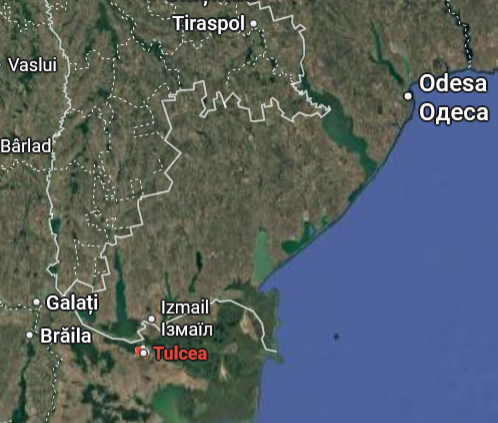-
Posts
15776 -
Joined
-
Last visited
Content Type
Profiles
Forums
Store
Downloads
Recruiting - 2020
2019-2020 Football Season
Football
Entertainment
Sports
News and Business
Cloak Room
Transfer Portal
Recruiting
Events
Everything posted by Bevo
-
I'd just like to see their dinghy capsize in Miami.
-
You know he almost replaced Will Muschamp at Texas. He will be a DC somewhere next season.
-
No
-
https://www.bbc.com/news/articles/clydg8w7kxvo Trump says US plan to end Ukraine war not 'final offer' for Kyiv 5 hours ago Jaroslav Lukiv President Donald Trump has said a US plan to end the Russia-Ukraine war is not his "final offer" for Kyiv, after Ukrainian allies voiced concerns over proposals. Earlier on Saturday, leaders from Europe, Canada and Japan said the plan had elements "essential for a just and lasting peace", but would "require additional work", citing concerns over border changes and caps on Ukraine's army. On Sunday, security officials from Britain, France, Germany, the US and Ukraine will meet in Geneva, Switzerland. President Volodymyr Zelensky earlier warned Ukraine faced "one of the most difficult moments in our history" over US pressure to accept the plan seen as favourable to Moscow. Trump has given Ukraine until 27 November to accept the 28-point plan, while Russia's President Vladimir Putin said it could be the "basis" for a settlement. When asked on Saturday whether the current draft plan was his final offer for Ukraine, Trump told reporters at the White House: "No, not my final offer." "One way or another we have to get it [the war] ended, so we're working on it," he added. US Secretary of State Marco Rubio and special envoy Steve Witkoff will be among those taking part in talks in Geneva on Sunday. National Security Adviser Jonathan Powell will attend on the UK's behalf. Saturday's joint statement at the G20 summit in South Africa was signed by the leaders of Canada, Finland, France, Ireland, Italy, Japan, the Netherlands, Spain, the UK, Germany and Norway. Two top EU officials were also among the signatories. The statement said: "We believe therefore that the draft is a basis which will require additional work. We are ready to engage in order to ensure that a future peace is sustainable. We are clear on the principle that borders must not be changed by force. "We are also concerned by the proposed limitations on Ukraine's armed forces, which would leave Ukraine vulnerable to future attack." It added: "The implementation of elements relating to the European Union and relating to Nato would need the consent of EU and Nato members respectively". UK Prime Minister Sir Keir Starmer, who is at the G20 summit in Johannesburg, spoke to Zelensky on the phone on Saturday, followed by a call with Trump. On the Trump call, a Downing Street spokesman said Sir Keir "relayed the discussions that have been taking place between Coalition of the Willing partners [Ukraine's allies] in attendance at the G20 summit today". They added: "The leaders agreed their teams would work together on the 28-point US peace proposal in Geneva tomorrow. They agreed to speak again tomorrow." Sir Keir earlier said he was concerned about proposed caps on Ukraine's military in the US plan, saying "it's fundamental that Ukraine has to be able to defend itself if there's a ceasefire". The widely leaked US peace plan proposes Ukrainian troops withdraw from the part of the eastern Donetsk region that they currently control, and de facto Russian control of Donetsk, as well as the neighbouring Luhansk region and the southern Crimea peninsula annexed by Russia in 2014. The plan also includes freezing the borders of Ukraine's southern Kherson and Zaporizhzhia regions along the current battle lines. Both regions are partially occupied by Russia. The US draft would also limit Ukraine's military to 600,000 personnel, with European fighter jets stationed in neighbouring Poland. Kyiv would receive "reliable security guarantees", the plan says, although no details have been given. The document says "it is expected" that Russia will not invade its neighbours and Nato will not expand further. The plan also suggests Russia will be "reintegrated into the global economy", through the lifting of sanctions and by inviting Russia to rejoin the G7 group of the world's most powerful countries - making it the G8 again. On Friday, Trump said Zelensky would "have to like" the US proposals, adding otherwise Ukraine and Russia would continue fighting. Earlier in the day, the Ukrainian leader addressed the nation with a stark warning that the country "might face a very difficult choice: either losing dignity, or risk losing a key partner". "Today is one of the most difficult moments in our history," Zelensky added, pledging to work "constructively" with the Americans on the plan. On Saturday, Zelensky announced that his head of office Andriy Yermak would lead Ukraine's negotiating team for future talks on a peace deal, including any that may involve Russia. "Our representatives know how to defend Ukraine's national interests and exactly what must be done to prevent Russia from launching a third invasion, another strike against Ukraine," the president said in a video statement posted on social media. Kyiv is critically dependent on deliveries of US-made advanced weaponry, including air defence systems to repel deadly Russian air assaults, as well as intelligence provided by Washington. Putin on Friday confirmed Moscow had received the US plan - but said it had not been discussed with the Kremlin in detail. He added Moscow was willing to "show flexibility" - but was also prepared to fight on. Putin launched a full-scale invasion of Ukraine in February 2022. In recent months, Russian troops have been slowly advancing in Ukraine's south-eastern region - despite reported heavy combat casualties.
-
Also, the schedule and lifestyle is easier - recruiting is a year round job and there are few breaks and in the NFL you don’t have to coddle kids who think they are men.
-
They should just use any light blue and license the color for a flat fee from some small time high school football program and then highlight it with their current dark blue. Isn’t Pearland light blue?
-

Texas Recruiting Notes 2026: Boulevard of Broken Bagmen
Bevo replied to texifornia's topic in 🤫$9.95🤫
Why the fuck do we have a porn star visiting? -
Gavin Tanner, I have a lot of questions. Number one, how dare you!
-
No, that makes sense. No oral version though.
-
Seribantumab doesn't look great in clinical trials Patritumab deruxtecan is further along but I have my doubts Hummingbird Biosciences has some interesting stuff but it is too early stage and for the most part being done outside the US anyway. I think the company is in Singapore.
-
That sucks. I'm very sorry to hear that news. Stay strong. I assume they already tried zenocutuzumab (Bizengri). I can't remember offhand what else is in development, but I'll check it out.
-
I hope this is true. And I hope the US doesn’t try to interfere. You know Russia is trying to splinter European support. My fear is that we will do it better than Russia ever could. Supporting Slovakia and Hungary while sanctioning our long-standing allies could do it.
-
Yeah, I usually link long articles or at least include the author. Short ones, it depends, but I probably don’t provide the link because I don’t think people really care.
-

Texas Recruiting Notes 2026: Boulevard of Broken Bagmen
Bevo replied to texifornia's topic in 🤫$9.95🤫
That could be better. For reference, satya is the 180th top poster on this board. -
High efficiency: Ukrainian F-16 and Mirage-2000 pilots neutralized over 1,600 Russian targets Kyiv • UNN November 19 2025, 05:11 AM • 630 views Since August 2024, Ukrainian F-16 and Mirage-2000 pilots have intercepted over 1,300 aerial and destroyed over 300 ground targets of the occupiers. The F-16s account for over 1,300 intercepted aerial targets and the elimination of hundreds of units of enemy equipment. Since August 2024, Ukrainian F-16 and Mirage-2000 pilots have intercepted over 1,300 aerial targets and hit more than 300 ground targets of the occupiers. UNN reports with reference to the press service of the Air Force of the Armed Forces of Ukraine. Details For more than a year of operation in the Ukrainian sky, the crews of F-16 and Mirage-2000 fighters have demonstrated consistently high results in repelling enemy attacks. The F-16 alone has accounted for over 1,300 intercepted aerial targets! In particular, during today's attack, pilots intercepted and shot down at least 10 enemy cruise missiles. F-16 and Mirage-2000 pilots - stated in the message of the Air Force of the Armed Forces of Ukraine. Ukrainian F-16 pilots hit more than 300 ground targets. Hundreds of units of enemy equipment, command posts, UAV control points, ammunition depots, and enemy logistics were eliminated.
-
Not new but more detail: Ukrainian Drone Strike Halts Russia’s Fourth-Largest Oil Refinery By Charles Kennedy - Nov 18, 2025, 11:00 AM CST Rosneft’s Ryazan oil refinery, which is Russia’s fourth-largest, has suspended its main crude processing operations after being hit by a Ukrainian drone strike over the weekend. The plant's main crude distillation unit has been halted, and industry sources expect the refinery, which processes over 260,000 barrels per day (5% of Russia’s total capacity), to remain idle until at least December 1. This attack is part of an intensified campaign by Ukraine to target Russian oil refining, storage, and export infrastructure, which has also recently led to a temporary suspension of oil exports from the key Novorossiysk port. Rosneft’s oil refinery at Ryazan, Russia’s fourth-largest, has suspended crude processing after a Ukrainian drone attack this weekend, industry sources told Reuters on Tuesday. The Ryazan refinery, which has been targeted – and hit – by drone strikes all year, has now halted its main crude distillation unit. “The plant is expected to remain idle until the end of the month. No (oil product) loadings are planned before December 1,” according to one of Reuters’ sources. Pavel Malkov, the governor of the Ryazan region, on Saturday said on his Telegram channel that debris from downed drones “caused a fire at one of the industry facilities” in the region, without specifying which facility was damaged. Another crude distillation unit (CDU) at the Ryazan refinery was hit at the end of October, taking 80,000 barrels per day (bpd) of the plant’s refining capacity offline, or about a quarter of the total capacity of the refinery. The unit is still undergoing repairs while the other units have also been idled, although it is not clear whether all have sustained damages from Ukrainian drone attacks, the industry sources told Reuters. The Ryazan refinery operated by oil giant Rosneft is one of the biggest crude processing plants in Russia with a capacity to process more than 260,000 barrels per day of crude—or 5% of Russia’s refining capacity. Ukraine has intensified attacks on Russia’s oil refineries, depots, and export terminals in an escalation of the war on energy infrastructure, which has also seen Russia targeting Ukraine’s gas producing facilities and gas and power distribution networks as temperatures drop. The key Russian oil port of Novorossiysk on the Black Sea suspended oil exports for a few days, following a major Ukrainian attack on the port early on Friday. Ukrainian forces have increasingly targeted Russian oil-refining, storage, and export infrastructure using drones and missiles. The campaign has gained intensity in recent months, with the Center for European Policy Analysis noting a shift in strategy “from smaller-scale strikes on storage tanks to targeting hard-to-replace refinery equipment, like cracking units, much of it western-made and subject to sanctions.” By Charles Kennedy for Oilprice.com
-
-

2025-26 Houston Rockets Thread - Back to Contention?
Bevo replied to BigOrange1's topic in Basketball
Sabonis had a great career, just not in the NBA - He came to the NBA already worn down. -

Texas Recruiting Notes 2026: Boulevard of Broken Bagmen
Bevo replied to texifornia's topic in 🤫$9.95🤫
Even more disappointing is trying to determine which coach on offense has performed the best. -
Russia wants demilitarization of Ukraine because then it can attack Ukraine again in a few years. Ukraine knows Russia and knows what will happen if it demilitarizes. But Ukraine still wants to end the war because frankly its people are tired and it is running out of bodies to maintain the front lines and has no opportunity through the battlefield to regain control of land. It is a battle of attrition that Ukraine knows it can’t win. Victory can only come with the death of Putin or civil unrest within Russia. I think the last link I posted yesterday Rusi. something gave 4 ways the war could go - it’s a worthwhile read.
-
Everything points to Russian intelligence services commissioning sabotage on Polish railways over the weekend, a spokesperson for the special services minister said on Tuesday. An explosion that damaged a Polish railway track on a route to Ukraine was an “unprecedented act of sabotage,” Prime Minister Donald Tusk said on Monday as he vowed to catch those responsible for an incident he said could have ended in tragedy. The blast on the Warsaw-Lublin line that connects the capital to the Ukrainian border followed a wave of arson, sabotage and cyberattacks in Poland and other European countries since the start of the war in Ukraine. Warsaw has in the past held Russia responsible, saying Poland has become one of Moscow’s biggest targets due to its role as a hub for aid to Kyiv. Russia has repeatedly denied being responsible for acts of sabotage. “The blowing up of the railway track on the Warsaw-Lublin route is an unprecedented act of sabotage aimed at the security of the Polish state and its citizens,” Tusk wrote on X. “An investigation is underway. Just like in previous cases of this kind, we will catch the perpetrators, regardless of who their backers are.” Four government ministers told a press conference there was one confirmed and one “highly probable” act of sabotage, referring to an incident on another part of the route where railway traction was damaged. Warsaw said in October that Poland and Romania had detained eight people suspected of planning sabotage on behalf of Russia. Local police said on Sunday that a train driver had reported damage on the railway line, but authorities were not able to immediately confirm that it was a result of sabotage. “This route is also used to transport weapons to Ukraine,” Tusk said in a video address. “Fortunately, no tragedy occurred, but the legal implications are very serious.” Defense Minister Wladyslaw Kosiniak-Kamysz said the military was inspecting a 120 km (74.6 miles) stretch of track leading to the Ukrainian border. Interior Minister Marcin Kierwinski said that abundant evidence was collected at the site that should allow for the perpetrators to be quickly identified. The damaged route that passes through the eastern city of Lublin is used by 115 trains daily, the infrastructure minister said.
-
The red is the evacuated village. There is a thin stretch of Ukranian land reaching it. Moldova separated by the white line is superior to the thin stretch of land.
-
Ukraine-Russia war latest: Nato member Romania evacuates villages after Putin’s attack on tanker Former security minister Tom Tugendhat says incident is tantamount to Russia 'attacking Nato’ A suspected Russian drone attack in Ukraine saw a Turkish tanker hit in the Odesa region Monday, setting the vessel on fire and prompting evacuations across the Danube river in Romania. Three Romanian villages have been evacuated after Russia attacked a Turkish LNG tanker off the coast of neighbouring Ukraine on Monday. The vessel suffered significant damage during a Russian strike in Ukraine's southern Odesa region and scores of people were evacuated, mostly from the border village of Tulcea in the Nato member state, over fears it could explode. Tom Tugendhat, the former security minister, said the incident was tantamount to Russia "attacking Nato". “Putin is expanding his Ukrainian war to dissuade us from defending European freedom,” he warned. The incident came as Emmanuel Macron hosted Volodymyr Zelensky at the Elysee Palace in France, where the pair announced a deal to provide Kyiv with 100 Rafale fighter jets. The French president said he hoped that a peace deal to end the war in Ukraine could be struck as early as next year, or before the French presidential election in April 2027.
Football ... Basketball ... Baseball ... Other Sports ... Futbol ... 🤫995🤫 ... Gambling ... Movies & TV ... Music ... Hobbies ... Lulz ... Food & Travel ... Daily Texan ... Business and Markets ... Cloak Room ... Help ... For Sale ... Board Discussion ... Subscribe!... Donate!... COOKIE MONSTER!








